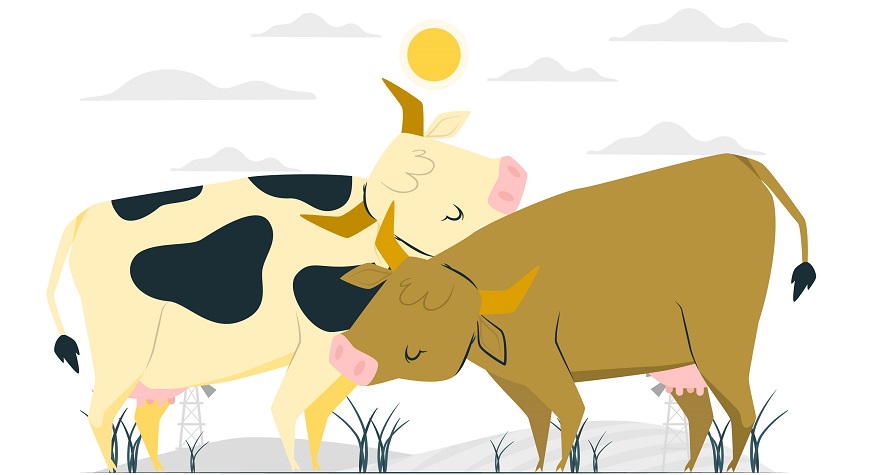Farmers take considerable effort to ensure that their cows and calves are healthy and well-treated. Dairy producers are dedicated to making sure that every calf is healthy and protected from injury since calves represent the herd’s future. This entails giving their animals wholesome food, secure shelter, and individualised care throughout their lives. They also register Calves online within 27 days of its birth.
Let’s Discuss, how farmers take care of their cows and calves?
Even before the calf is born, great care should be taken of it! Every 12 to 14 months, cows normally give birth to a calf. A cow stops being milked two months before her due date and switches to a special diet to get her ready for calving.
The cow is transferred to a maternity enclosure with soft, dry bedding, such as straw, sand, or sawdust, as her due date approaches. She receives special consideration and care. Dairy producers closely monitor the cows during birth to guarantee a healthy delivery.
How To Look After A Newborn Calf
It is not an exaggeration to say that newborn calf care is the beginning of it all. A calf’s potential for development and a reliable weaning weight is enhanced when it is starting off robust and healthy.
The items below are things you should have on hand by calf registration.
- Calf catcher
- Iodine
- Tags and tagger
- Castration equipment and supplies
- Colostrum replacer
- Antibody supplementsVaccines
- Warming equipment if you live in a cold climate
- Other antibiotics or pain medications (after discussing with your veterinarian)
The Essentials of Newborn Calf Care
Dry off and warm the calf
The mother should be able to vigorously lick the calf to dry and warm it, but there are instances when extra tools, like a warming box, would be useful. By doing this, you will be able to provide the newborn calf with a warm, dry environment that will help protect it from the cold.
Iodine-soaked navel
By dipping the navel in iodine, which can take a day or two to dry out and fall off, you can lessen the risk of infection from the exposed umbilical cord. Because the umbilical cord travels directly to the liver, there is a very high risk that an infected calf may develop a systemic illness.
Vaccination
Vaccines are effective instruments for keeping your calf healthy. With your veterinarian, go through a protocol that works for your situation.
Castrating bull calves is an option
Castration of calves is frequently recommended by veterinarians since it is less painful, less stressful, and less likely to result in a bull calf bleeding out because they are smaller. Although veterinary science normally advises producers to consider castrating calves when they are young, you should still talk to your veterinarian regarding the time and pain management.
Calf Registration is also done online. Are you Looking to register calves online?


Recent Comments